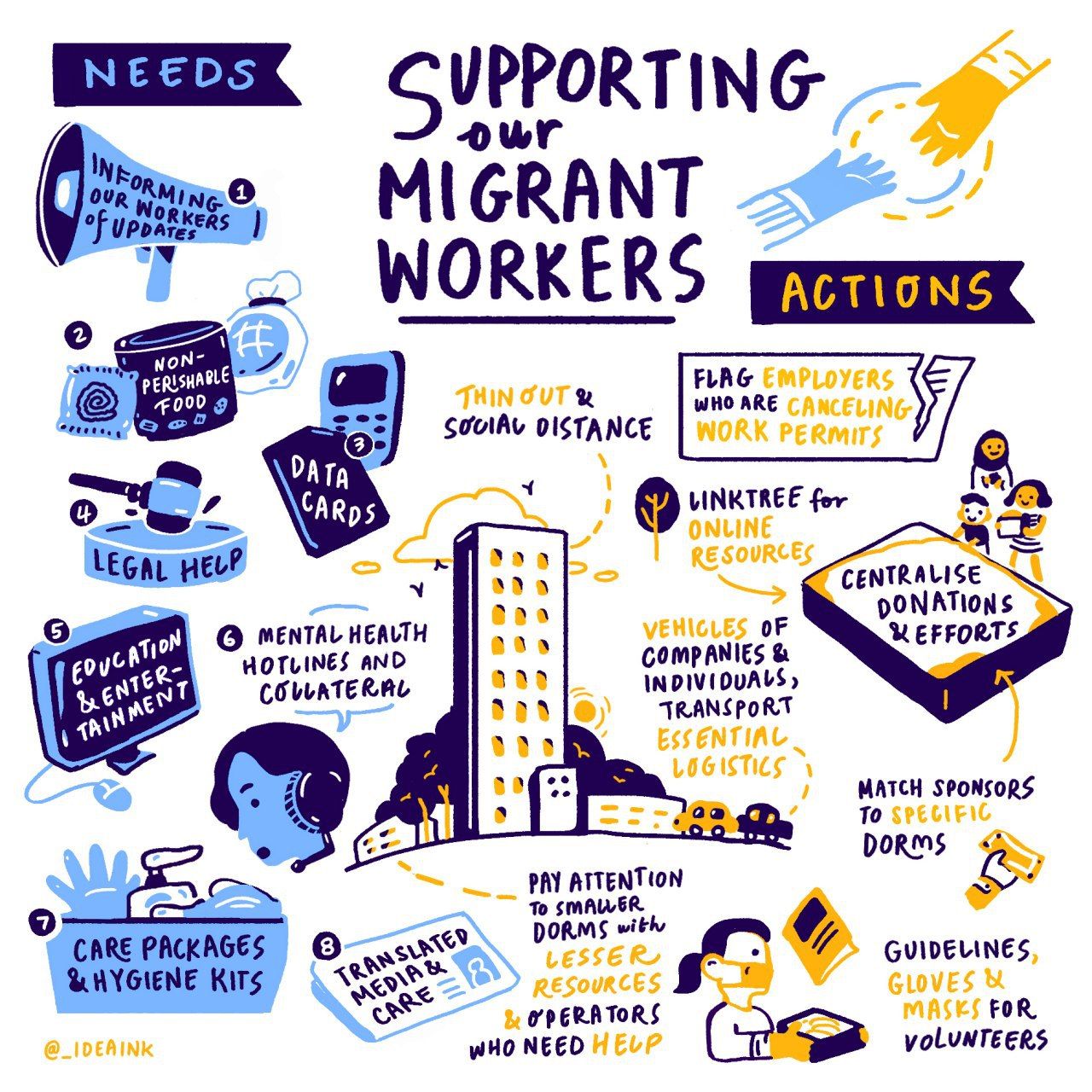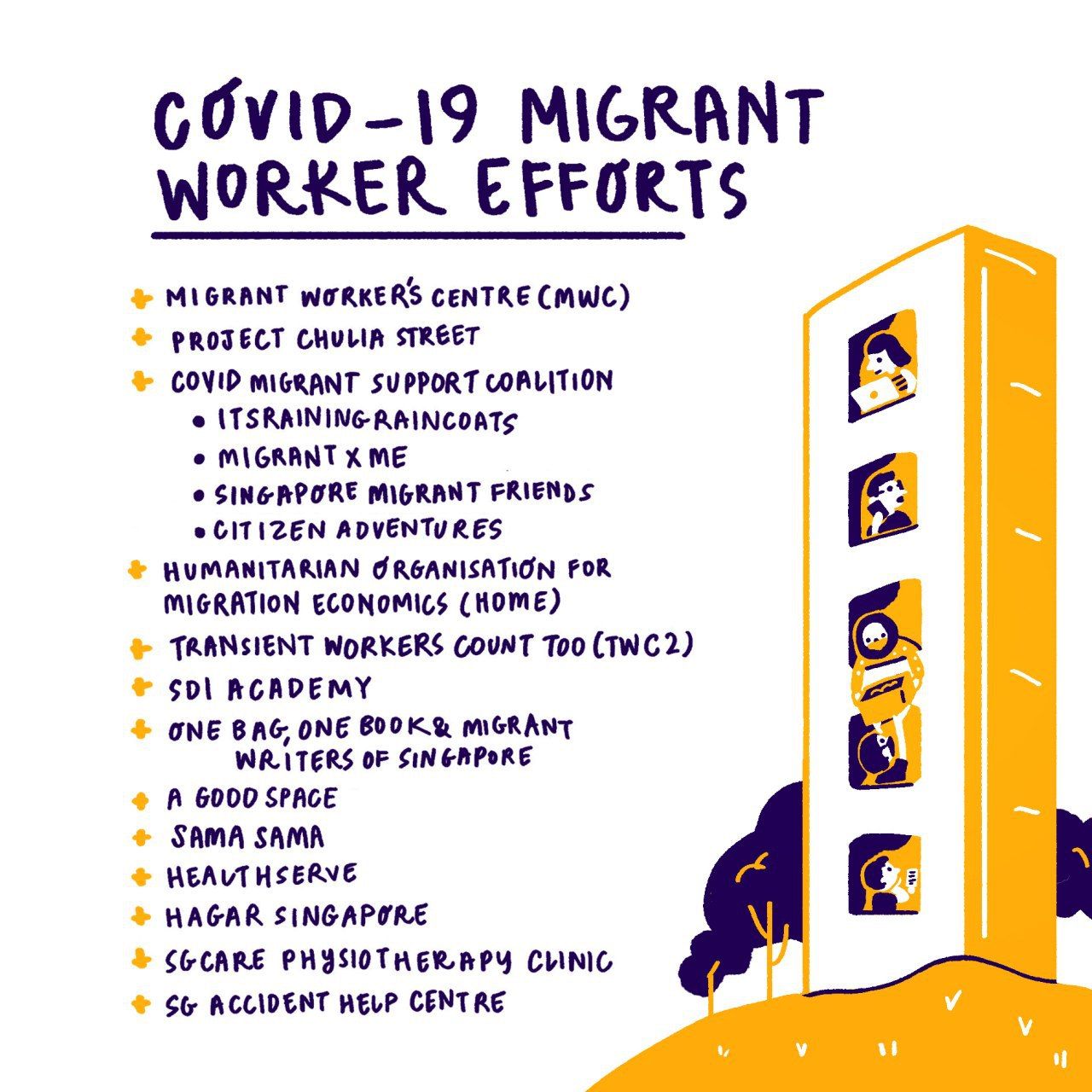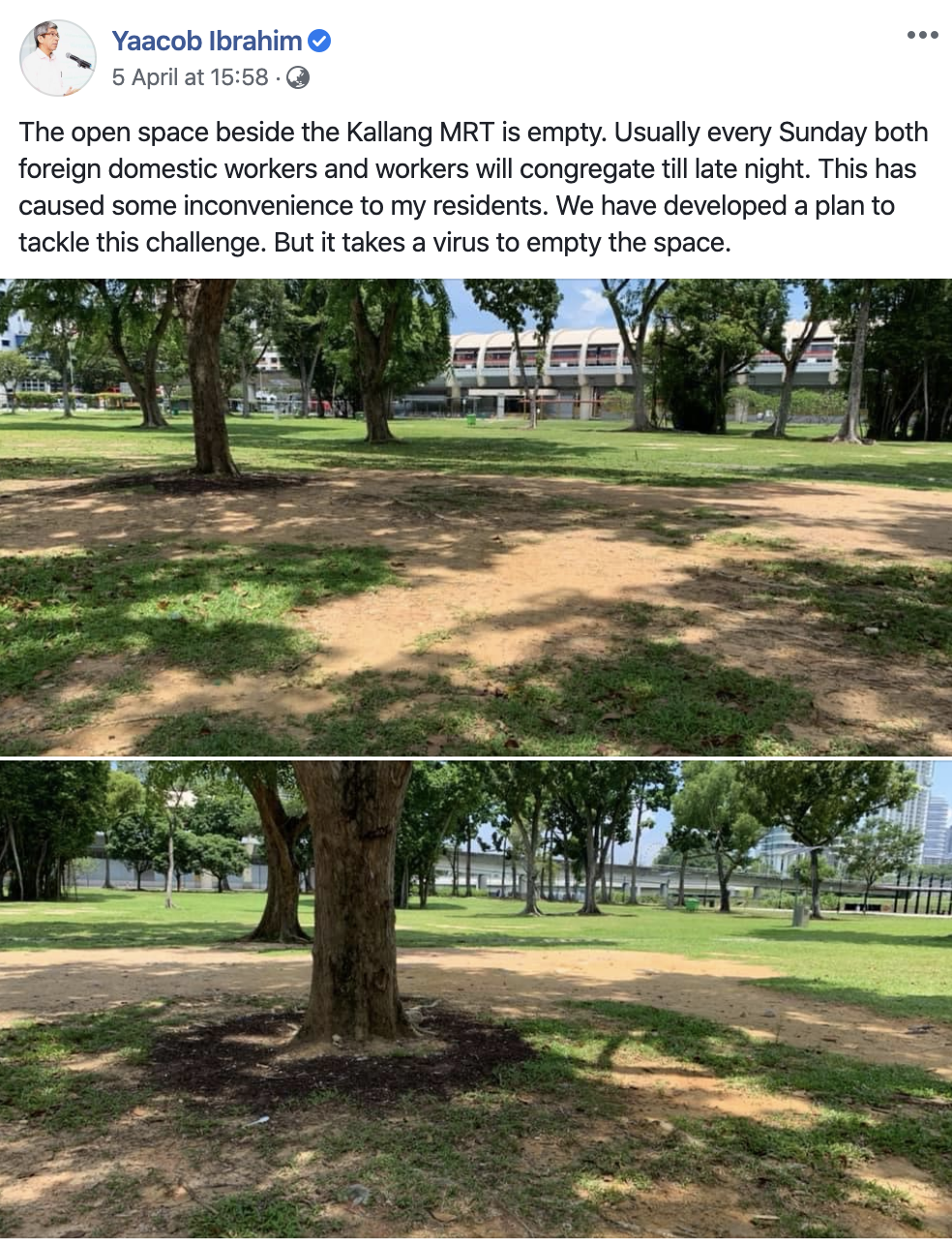There’s now a 30-day free trial built in to get full access to this newsletter. Substack has also provided more flexibility for subscriptions, so I’ve opened a Milo Dinosaur Funder option for those who would like to support this newsletter at an amount higher than the regular rate.
If you’d like to gain full access to the newsletter but can’t afford it at the moment, please get in touch by replying to this email.
There’s a giveaway at the bottom of this newsletter so scroll down!
Support migrant workers…
Week 1 of the “circuit breaker”: it’s been a tough one for many people out there, more so for Singapore’s migrant workers. COVID-19 has exploded among the migrant worker population (there are around 500 migrant workers among the confirmed cases), and the government is taking drastic measures to try to keep it under control. As of the time of writing, five dormitories have been gazetted as isolation areas: S11 Dormitory @ Punggol (13,000 men), Westlite Toh Guan (6,800 men), Toh Guan Dormitory (4,500 men), Sungei Tengah Lodge (capacity of up to 25,000 men), and Tampines Dormitory (number as yet unknown). This means a whopping 50,000 or so men have been confined to their rooms.
Men in other dorms have been told to stay within their dormitories, although it seems as if they are allowed to leave for essential things like buying food. Many aren’t working at the moment since so many workplaces have been shut down for now, although I’m hearing some reports of some still working, particularly if their dorms are situated at their workplaces.
It’s been a mad scramble: given how densely populated these dormitories are and how many men are involved, it’s a mammoth task having to lock it all down. There have been issues with the quality of food, as well as the cleanliness of the accommodation.
The Ministry of Manpower has issued statements saying that they’re working on continuously improving cleanliness and food quality, which is good. But we shouldn’t forget that all these issues of overcrowding, hygiene, and food quality are ones that migrant rights groups have been raising for years. And there’s still a long way to go… Yesterday, the government said that workers transported in the backs of lorries should also observe the one-metre safe distancing rule, even though NGOs have been saying for the past decade that workers shouldn’t be ferried around in that way at all.
Singapore had been doing relatively well with our COVID-19 response, but we took our eyes off the ball here… because in so many ways migrant workers just never registered on our radar. This should be a wake-up call to Singapore to change the way we treat people. Minister for Manpower Josephine Teo has said that after this circuit breaker period, “we can deal with this issue in a dedicated way.” She should not be allowed to forget it.
For now, the government is thankfully heeding advice and has said that they are working on moving workers out of their dormitories to reduce the number of people in each place. They seem to be starting with those working in essential services, housing some of them in vacant HDB flats.
For those who are looking to help, fundraisers are currently being run for migrant rights groups so they can continue or step up their work. Just click the buttons below to be directed to the relevant pages:
Donate to HOME's COVID-19 fundDonate to TWC2 and HealthServe


…they are part of our community too
One thing I have been very disturbed by is the rhetoric that we have when talking about migrant workers even during this crisis. During his briefing on 9 April, Minister for National Development Lawrence Wong said he wanted Singaporeans to understand that we are “dealing with two separate infections — one in the foreign worker dormitories and one among the local population, where numbers are more stable for now.”
Let’s be clear: COVID-19 is not like Changi Airport where there are separate queues for Singaporean passport holders and long-term residents. The coronavirus does not care what your visa status is. The reason the virus is now spreading to such large numbers of migrant workers is because they have been crowded into dormitory rooms, making safe distancing a privilege that they couldn’t afford. And now Singapore is facing a huge problem, because (for now) these workers are still in crowded dorms and there’s a lot of fear and anxiety about it spreading further.
Then there’s all the mention of policing. When the government announced that workers in essential services would be moved into empty HDB blocks, Singaporeans were also assured that police and private security officers would be deployed to “maintain order”. The police and armed forces have been roped in to be part of an inter-agency taskforce looking specifically at COVID-19 and migrant workers, and Senior Minister Teo Chee Hean has been invited to guide them “given his familiarity with police work”. Okay, I can understand mobilising the police and army if we’re short on manpower at this time when all civil servants are probably already burning the candle at both ends, but why is Teo’s “familiarity with police work” the key here when it comes to a taskforce focused on migrant workers?
This is not a time for “Us” and “Them”. Migrant workers are part of Singapore’s local population, and we all have a duty of care towards one another. I’m worried that Wong’s framing will lead to further stigmatisation and Othering of an already marginalised population, perpetuating racist beliefs that these men are carriers and spreaders of disease, and therefore should be seen as threats. It’s this sort of logic that gets you comments like these from even members of our political elite:

He’s since apologised, although I suspect this won’t be the last we see of such attitudes.
The circuit breaker is a partial lockdown
The COVID-19 (Temporary Measures) Act, passed in Parliament on Tuesday (which feels like a century ago at this point) allows the government to issue control orders that ban social gatherings of any size in public or private—so no dinner parties or sleepovers. The current control order lasts for the duration of the circuit breaker, although there’s the possibility of it being extended. During this time, people who flout the safe distancing rules could face prosecution and fines; the government is deploying over 2,500 enforcement officers to keep people in line (or out of it, and on their way home).
This has resulted in some OTT like cuffing and arresting an elderly uncle who wanted to eat alone in a HDB void deck. Hawkers, taxi drivers, and food delivery riders have also had trouble finding places to eat while working. I hope some leeway can be granted to them; I thought about offering to allow delivery riders to eat at my place before continuing with their work, then I remembered that’s not allowed either.
For those of us who have the privilege of being able to stay home and observe safe distancing—please please please do so. It’s absolutely key to keeping people safe.
Why the !$#% is there still election chatter right now?!
The Parliamentary Elections (COVID-19 Temporary Arrangements) Bill also had its first reading in Parliament this past week. Thankfully the next reading isn’t until the next session, so there’ll definitely be no elections during this month.
While there’s nothing wrong with preparing for the possibility of having to hold an election in the middle of the outbreak, many still see the introduction of this bill as an indicator that Lee Hsien Loong might be wanting to call an election sooner rather than later. Some have speculated about June.
I can’t believe we’re still talking about whether there are going to be elections soon, even at this time of crisis. Here’s CAPE with four arguments why we don’t need to have elections right now.
In other news
I wrote for Al Jazeera English about the young climate strikers who are now being investigated by the police simply because they posed for photos with paper and cardboard signs calling for climate action.
Here’s A Nice Thing
I was going to share a photo of a puppy but actually, the Nice Thing is week is all who have stepped up to donate, volunteer, speak out, show solidarity for others who have been heavily impacted by COVID-19.
Fundraisers for migrant workers have smashed their targets. Photographers are also holding print sales, with the proceeds going to groups helping migrant workers. There’s the Mutual Aid Hub, collating links to resources and ways that you can help, classified according to groups and needs. There are ways for you to buy a meal for someone else in need. Young hawkers are facing financial woes of their own, but they’re still giving out food. Pasar Glamour is starting a fund for freelancers in the performing arts sector who have lost their jobs. If you can, Willing Hearts is looking for volunteers to cook and deliver meals to needy families.
Thank you thank you thank you for everyone who has pitched in however they can. We’re in for a long haul so please take care and rest up! 🥰🥰🥰
Giveaway!
Ethos Books is a local independent publisher who does great work and supports not just local writers, but also civil society. It’s a tough time for all local businesses; I want to support them, but pretty much already own all the books I want from their catalogue, so I thought it’d be much better to pay it forward.
I have 10 Ethos Books gift cards of S$10 each, and I’m giving it away to the first 10 people who get in touch with me, either by replying to this email, or contacting me via the button below.
I’m not going to ask any questions or do any means-testing, but I’d like to ask everyone to work on an honour system—if you have the means to buy from Ethos yourselves, please head over to their website to do so: you can get gift cards here, or browse their books here.
If you know someone who might benefit from a gift card, feel free to forward this newsletter to them.

